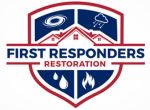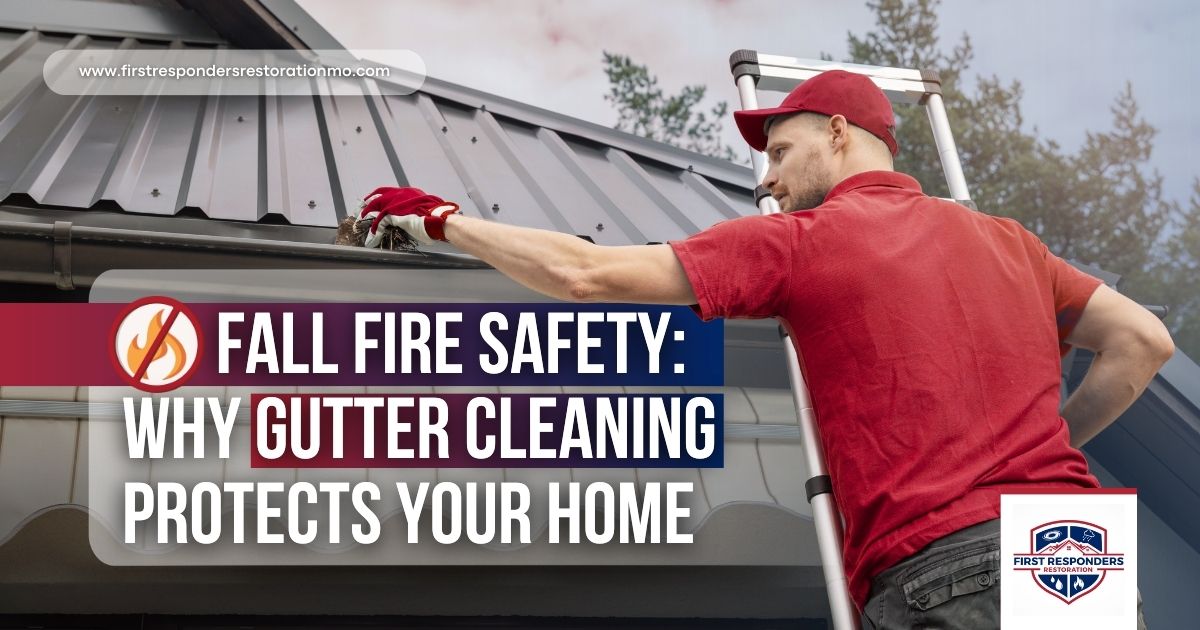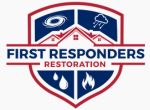Fall Fire Safety: Why Gutter Cleaning Protects Your Home
Fall is a season of beauty. Golden leaves, cool breezes, and evenings by the fire. But those same falling leaves that create postcard-worthy scenes also create one of the most common fire hazards for homeowners: clogged gutters.
Gutter cleaning is one of the simplest yet most effective steps you can take to keep your home safe during the stormy fall season. When gutters are clogged with dry leaves and debris, they become a hidden fire hazard, especially when strong winds or downed power lines spark embers. By prioritizing gutter cleaning, you not only reduce fire risks but also protect your home from storm-related water damage.
The Overlooked Importance of Gutter Cleaning in Fall
When leaves, pine needles, twigs, and even bird nesting materials collect in gutters, they don’t just block rainwater. They become tinder waiting for a spark. Strong winds, a nearby lightning strike, downed power lines from a severe autumn storm, or embers from a nearby fire can ignite this debris in seconds, spreading flames to your roof, attic, and beyond. This is particularly critical in wildfire-prone regions, where an ember can travel over a mile and land directly in a bed of flammable debris.
And the dangers don’t stop there. This is why gutter cleaning is important for more than just fire prevention. Clogged gutters also lead to water overflow during storms, which damages siding, foundations, and landscaping. The accumulated water can create a host of problems, from basement flooding to mold growth. Simply put, gutter cleaning is one of the easiest, most cost-effective ways to protect your home from multiple seasonal risks and a key part of any comprehensive storm response plan.
The Fire Hazards in Gutters: What’s Really at Stake
Not all gutter debris is equal. Some materials are more dangerous than others, and they can all contribute to a significant fire. This addresses the question, can clogged gutters cause a house fire? The answer is a resounding yes. A small, seemingly innocent pile of leaves can become a catalyst for a major disaster.
Think of your gutters as a direct extension of your roofline. If a fire starts there, it can move inside your attic, along the eaves, and into your walls within minutes. That’s why many fire safety campaigns now include gutter cleaning as a central component of wildfire prevention guidelines. A seemingly minor hazard, a clogged gutter can turn a small, manageable flame into a raging house fire in the blink of an eye. The risks are real, and understanding these specific dangers is the first step in effective fire prevention.
How Often Should You Clean Your Gutters?
Many homeowners wonder, “Is once a year enough? ” The answer depends entirely on your environment. For those asking how often you should clean gutters in fall, it's more about being proactive than following a rigid calendar.
Signs that your gutters need cleaning include water overflowing during rain, plants growing from the gutter trough, or visible debris from the ground. Paying attention to these signs your gutters need cleaning and adjusting your frequency accordingly can dramatically reduce both fire and water damage risks. It’s a habit that pays for itself many times over in prevented costs and enhanced safety.
DIY vs. Professional Gutter Cleaning
Some homeowners tackle gutter cleaning themselves, while others prefer to hire experts. Both approaches work if done correctly.
For those who choose the DIY route, safety is paramount. How to be safe while cleaning gutters can't be overstated.
Hiring professionals especially for multi-story homes or steep roofs, is often the safer, smarter choice. A quick search for gutter cleaning services near me will show you a variety of options. When you hire a professional, you get more than just clean gutters.
Ultimately, if safety is a concern or your gutters are difficult to access, hiring professionals is the safer, smarter choice.
Extra Protection: Gutter Guards and Fire-Resistant Materials
While no system is completely maintenance-free, gutter guards reduce the frequency of cleaning by blocking larger debris. This brings us to a key point: gutter guards vs. cleaning. A guard is a preventative measure, not a complete solution. While they block leaves and twigs, fine particles, dust, and pine needles can still slip through and accumulate, still requiring occasional inspection and cleaning.
For homeowners in wildfire-prone areas, a critical step is to consider replacing older gutters with metal or other fire-resistant gutter materials. Vinyl gutters, for example, can melt or warp under extreme heat, while aluminum or steel options can withstand much higher temperatures, providing an additional layer of protection against a fire that might start near or on your home
Preparing for Storm Season and Power Outages
Gutter cleaning is only one piece of the fall fire safety puzzle. Storms often bring blackouts, forcing families to rely on generators, candles, or fireplaces. Unfortunately, these can create indoor fire hazards. A complete safety plan requires addressing both outdoor and indoor risks. This is where you bring your family together for an emergency meeting to discuss what to do in case of a fire or power outage.
The Homeowner's Comprehensive Fall Checklist
To simplify your seasonal preparations, here’s a thorough seasonal home maintenance checklist for fire prevention:
FAQs About Gutter Cleaning and Fire Safety
Gutter Cleaning as Peace of Mind
Gutter cleaning might seem like a small seasonal task, but it’s one of the most powerful fire-prevention tool you have. By removing dry debris, you reduce ignition risks, prevent water damage, and strengthen your home’s storm defense. This is a fundamental answer to the question, why is gutter cleaning so important?
Pair this habit with indoor precautions like alarm maintenance, candle safety use, and proper fuel storage, and you’ll create a 360° safety shield for your family and community. When you have a solid seasonal home maintenance checklist in place, you can be prepared for anything.
In the end, safety isn’t about paranoia. It’s about peace of mind. With clean gutters and a proactive plan, you can fully enjoy everything autumn offers without worrying about what the next storm might bring.
We're proud to serve the St. Louis community. To see if our services are available in your area, visit our page on service locations.








Leave A Comment